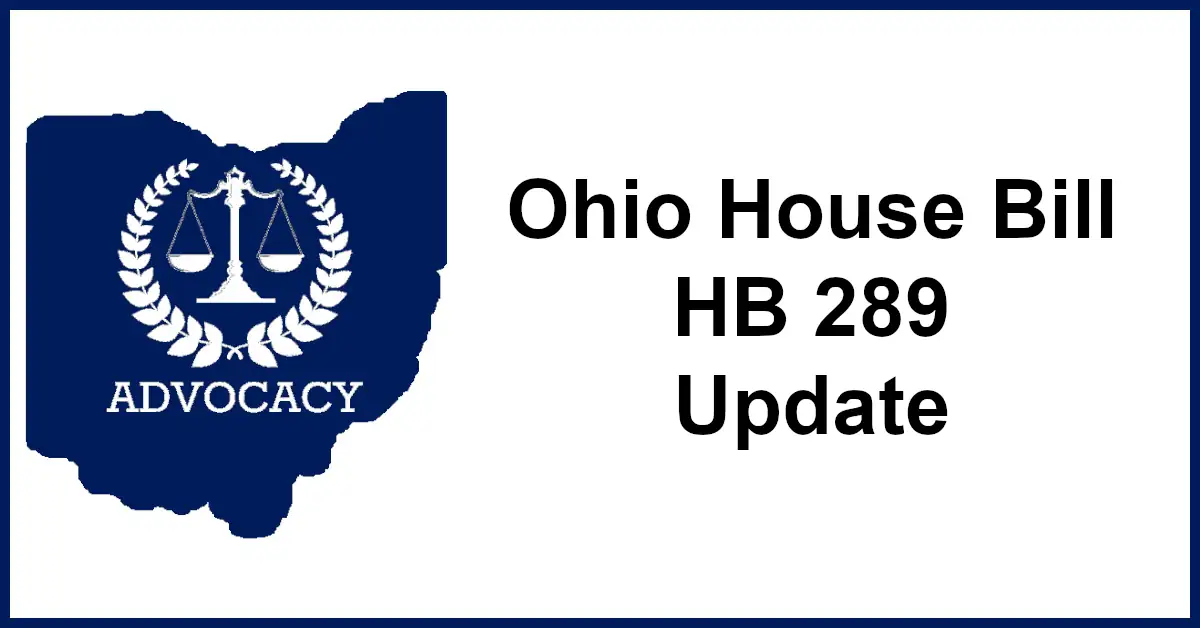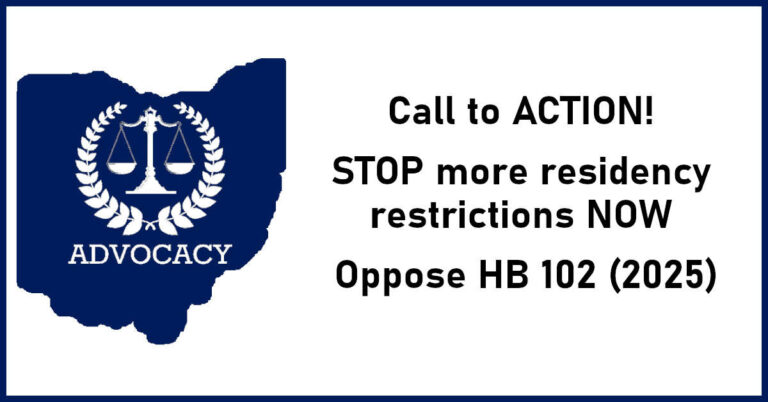A sign-on letter was drafted and distributed by a member of the Ohio RSOL Legislative Advocacy Team. The letter advocated for eliminating the 30-day registration requirement. In addition to signatures from Ohio RSOL members, the letter also received signatures from members of other organizations. A diverse group of organizations signed on, including probation departments, the Ohio Association of Local Reentry Coalitions, social justice initiatives from the Ohio United Methodist Church. In addition to these, professionals such as counselors, social workers, housing providers, and members of the Ohio Justice Alliance for Community Corrections. We’ve also heard that at least one Republican judge in Ohio opposes the 30-day rule, but probably won’t say so publicly.
Details from the HB 289 Senate Hearing
Oral testimony opposing the homeless provision was delivered by a spokesperson for the Ohio ACLU and the executive director of Accompanying Returning Citizens with Hope (ARCH). The committee members listened respectfully to their testimonies. Senator Hicks-Hudson inquired about alternatives to the provision. Senator Gavarone inquired about measures elected officials can implement to prevent registered homeless individuals from residing near schools and daycare centers.
During the hearing two amendments were offered. Senator Gavarone proposed requiring ODRC/APA to notify local sheriff’s departments, upon their request, when a person on the registry is transported to their county from incarceration or a halfway house. Senator Manning, chair of the Senate Judiciary Committee, suggested restricting the 30-day provision’s applicability to individuals not residing in community shelters. This only helps those who are fortunate enough to have shelters in their county and aren’t excluded because of their registry status.
Analysis of Possible HB 289 Opposition Outcomes
This provision resulted from collaboration among Huron, Ottawa, and Erie county law enforcement and representatives from the Attorney General’s office. The research, it seems, examined the practices of Southern states, which have a documented history of oppressing citizens required to register and other involved parties.
Should the Senate alter the bill in response to Ohio RSOL’s input, its House Sponsors, Representative Blasdel and Representative Swearingen, could strategically attach it to unrelated legislation to guarantee its passage. This is entirely likely as legislators have engaged this tactic in past General Assemblies to support their cruelty to Ohio’s citizens who are forced to register. However, we still have opportunities to educate the sponsors and committee chairs that
- This solution is overreaching as local governments can already alter reporting (and do)
- Far more members of the criminal justice community stand opposed to this provision than they realize and a bill with only the tolling provision would be received more positively among more parties.
Work Continues Opposing House Bill 289
An Ohio RSOL Legislative Advocacy Team member will be in contact with OJACC’s leadership to strategize on how to bring their concerns to the attention of the attorney general and to connect with OJACC members in the sponsor’s district for a conversation next week. They will also meet with Senator Reynolds, Vice-Chair of the Senate Judiciary Committee. In the corrections field, she’s renowned for her for-profit reentry housing business, primarily serving those on the sex offender registry. Let’s make sure the bill sponsor gets so many calls opposing the bill that they’ll have to pause and reconsider.




